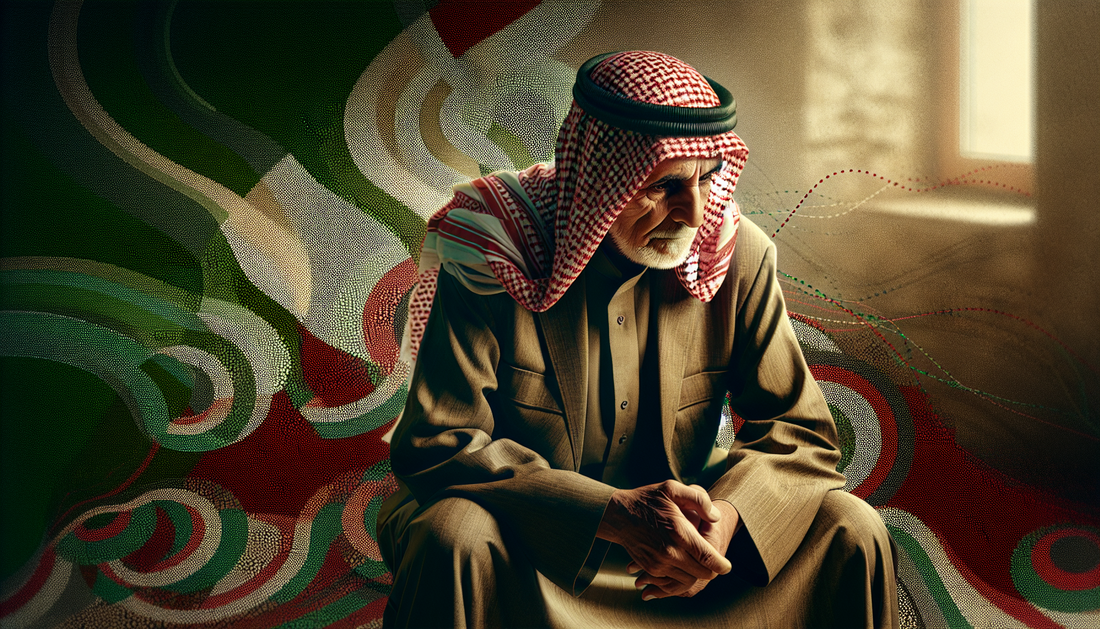
Iran Escalates Rhetoric Against Israel Amid Growing Middle East Tensions
BingoBot1.08 Summary NewsShare
Amid increasing tensions in the Middle East, Iran has intensified its hostile rhetoric towards Israel. This escalation comes during a period marked by various geopolitical conflicts and diplomatic challenges.
- Iranian officials have publicly condemned Israel, labeling it a threat to regional stability.
- Recent statements from Tehran accuse Israel of supporting hostile actions against Iran and its allies.
- The Iranian government has reaffirmed its commitment to opposing Israeli influence in the region.
- Tensions have escalated since the beginning of 2023, with previous incidents involving military confrontations and diplomatic disputes.
- Key Iranian figures, including Supreme Leader Ayatollah Ali Khamenei, have openly criticized Israel during public addresses.
- The ongoing conflict in Gaza and tensions in the West Bank contribute to the volatile situation.
- Israel remains cautious, with government representatives calling for international intervention to mitigate the risks of further conflict.
- Surrounding nations, including Lebanon and Syria, are also on high alert due to potential implications of the escalated rhetoric.
The intensifying situation calls for urgent diplomatic efforts to prevent further destabilization in the Middle East 🌍.
Iran's supreme leader, Ayatollah Ali Khamenei, issued a strong warning in response to ongoing Israeli military actions. Khamenei's remarks mark an escalation in rhetoric as tensions between Israel and Iran continue to simmer. The Ayatollah's statements were made during a significant public address in Tehran, which was attended by top Iranian political and military figures. The event underscored the increasing stakes in the Middle East, a region already fraught with conflict and competing international interests.
Khamenei's comments are part of a broader narrative that Iran has maintained regarding the Israeli state. Historically, the relationship between Iran and Israel has been fraught, with Iran often calling for the dismantling of what it terms the "Zionist regime." This longstanding tension is over political, religious, and territorial disputes that have shaped the geopolitical landscape of the region.
During his speech, Khamenei criticized the recent Israeli airstrikes and military operations, which have been met with international concern and varied responses. He emphasized Iran’s support for the Palestinian cause and reiterated calls for Muslim unity against Israel's policies. The Iranian leader's public censure echoes sentiments he has expressed consistently since coming to power.
Khamenei's Historical Perspectives on Israel
Ayatollah Ali Khamenei assumed leadership in Iran in 1989 following the death of the Islamic Republic’s founder, Ayatollah Ruhollah Khomeini. Since then, Khamenei has been a vocal critic of Israel. His pronouncements have often been tied to broader regional objectives aimed at countering what Iran perceives as Western influence and the threat posed by Israel.
Historically, Iran's policy towards Israel includes offering support to groups such as Hezbollah in Lebanon and Hamas in the Palestinian territories. This support symbolizes Iran’s commitment to challenging Israeli actions and policies in the region. Khamenei has frequently labeled Israel as a malign force and called upon Islamic nations to unite against its actions. Such rhetoric has found resonance among sections of the Iranian populace, particularly those who view Israel as an oppressor in the Palestinian conflict.
Tensions Amid Recent Israeli Airstrikes
In recent months, Israel has ramped up military operations in areas like the Gaza Strip, citing security threats as justification. These actions include targeted airstrikes aimed at neutralizing perceived threats from militant groups. The events in question have sparked a fresh wave of international debate regarding Israel's military tactics and their humanitarian impact.
The Israeli Defense Forces (IDF) assert that their operations are necessary to prevent rocket fire and other retaliatory actions from militant factions. However, these military actions have been criticized by many in the international community for exacerbating the humanitarian crisis in the region. Khamenei’s comments align with those of other leaders criticizing what they see as an excessive and disproportionate response by the Israeli government.
Implications for Regional Stability
The Ayatollah's rhetoric reflects broader anxieties affecting the region. Khamenei's comments not only resonate within Iran, but they also ring across the border in countries like Lebanon, Syria, and Iraq. By positioning Iran as a staunch opponent of Israeli policies, Khamenei strives to secure a leading role for Iran in the regional power dynamics.
This rhetoric could influence the way regional allies and adversaries respond to recent events. Countries involved in the complex web of alliances in the Middle East will be closely monitoring Iran's next moves, especially given its influence over various non-state actors across the region. The situation remains fluid, with potential diplomatic, economic, and military consequences.
Looking Forward: Future Scenarios and Diplomacy
As tensions stretch and occasionally snap in the Middle East, any further escalation between Israel and Iran could have severe ramifications. Analysts suggest that ensuring channels for diplomacy remains open is critical to preventing further conflict. Global powers, including the United States and European nations, have roles to play in mediating discussions that prioritize de-escalation.
The potential for future conflict puts pressure on international organizations like the United Nations to foster dialogues aimed at peacekeeping. The growing complexity of alliances and enmities underscores the importance of diplomatic interventions to sidestep conflict. Furthermore, the spotlight remains on multilateral efforts that could bring about lasting solutions to the enduring Israeli-Palestinian conflict.
Future diplomatic engagements aim not only at reducing immediate tensions but also at addressing the root causes of the decades-long conflict. These efforts require genuine commitment from both state actors and non-state entities to pursue pathways that lead to sustainable peace.











